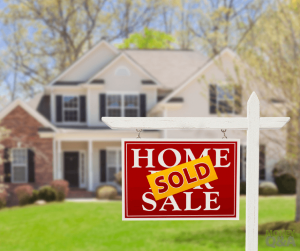
If you follow housing market news and know anything about the Millennial Generation, then you probably have heard from many different sources how Millennials aren’t buying homes. In many cases, this is more due to their inability to afford the expenses of homeownership, rather than an unwillingness to pursue the American Dream of owning a place of their own. But is millennials and home ownership a good idea?
However, in this day and age, is home ownership really the best option for young adults who are either still in college or only joined the workforce in the last decade or so? A lot has been written on the value of homeownership, but this shouldn’t be automatically viewed as the optimal choice, especially for this generation.
Millennials and Home Ownership – Do Millennials Need to Buy Homes?
Here are some considerations for Millennials trying to decide whether or not to save for their own home:
Economic Barriers to Homeownership
As the Washington Post recently reported, economic barriers to homeownership are on the rise. These barriers include rising mortgage interest rates, soaring home values, and diminishing supply of available homes as developers cannot keep up with demand for affordable housing.
These barriers, compounded with the relatively stagnant wage growth that recent college grads and thirty-something Millennials face more frequently compared to previous generations, have made it even more difficult for Millennials to save up enough money for a home of their own. If the idea of saving 20% of your desired home’s value sounds daunting (especially if you’re still paying off other debts and pursuing multiple savings goals), then renting isn’t a bad alternative.
Paying Off Debt vs. Saving for a Down Payment
Millions of Millennials have at least some student loan debt, which is considerably more urgent to pay off than saving for a home when you have the option to rent a home in the meantime. It’s not impossible to save for a down payment while paying off student loans, but you might stretch your budget too thin by trying to accomplish both on a fixed income.
Even if you still want to buy your own home in the future, being able to divert most of your leftover paycheck funds towards extra student loan repayments could save you quite a bit of money on interest over the course of the loan repayment period.
Financial Advantages of Renting
Renting isn’t the perfect option for everyone, but there are certainly some advantages worth considering if you think homeownership might be too expensive or too much effort for your lifestyle. While tenants’ rights laws may vary from state to state, you will likely be free of responsibility for repairing and paying for accidental damage (e.g., plumbing or electrical problems) and your landlord might cover the cost of some utilities as well. Building and yard maintenance is also typically included in your monthly rent, so you don’t have to spend countless dollars and hours maintaining every aspect of the property.
Renting also offers you greater flexibility to move if you get a job in a different city, compared to the time-consuming and oftentimes stressful process of selling a home. While you have to pay a security deposit on most rental properties, it will likely be minimal compared to any down payment on a home you purchase (and if you stay at that rental property long enough, you might be able to get a lot of that deposit back under “normal wear and tear” regulations).
Other Investment Opportunities
One of the biggest arguments in favor of homeownership is that owning property is an investment that will pay off later on when you own the home outright and are left with property taxes and maintenance as your primary monthly expenses. However, Robert Kiyosaki from Rich Dad is onto something when he argues that a primary residence (the home you live in) is not an asset.
While your home may appreciate in value over time – even then, there’s no guarantee the housing market will steadily increase – your residence likely will not generate enough cash flow to make up for the exorbitant cost of repairs, remodeling, indoor and outdoor maintenance, and other ongoing costs associated with homeownership.
While you could reduce your monthly expenses by renting out a room to a private roommate or through Airbnb, your home is still not as good of an investment as other investment options out there. By avoiding the down payment, property taxes, and maintenance costs that come from owning a home, you could free up much more money for an investment strategy that can bring in higher rates of return and regular dividends that you won’t have to wait 15-30+ years for.
Buying a home might have worked for previous generations. But, for Millennials, it might make more financial sense to pursue different investment opportunities with the money they save by not buying a home.
Contrary to popular myths, primary residences are not assets if you pour a fortune into fixing them up and maintaining them for nearly 3 decades before seeing any kind of return on this “investment,” which means that renting might be a preferable alternative for cash-strapped Millennials with more mobile lifestyles and different investment goals.
What do you think about millennials and home ownership? Do millennials need to buy a home?

I agree if you can’t afford to maintain a home, you shouldn’t buy one. But another advantage of being a home owner is that your payments will not (generally) increase if you have a fixed interest rate. I’ve heard stories from renters where their rent has gone up $300/month during the lease renewal since the landlord feels it is justified due to supply in the area. There isn’t much a renter can do about that either but suck it up or move.